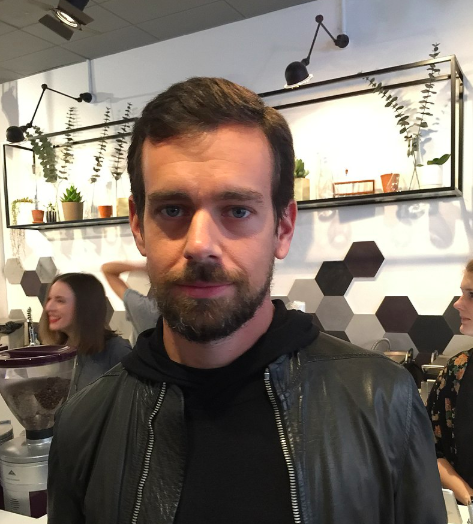On an episode of the Joe Rogan podcast released on Saturday, Twitter CEO Jack Dorsey reiterated his longstanding endorsement of cryptocurrency as the native currency of the internet. But Dorsey also went much further, reimagining Twitter itself as a curation service that could ride herd on uncensorable content hosted on the blockchain.
The comments pointing to a blockchain-backed rethink of Twitter came during a discussion of the controversial topic of content moderation on social media platforms. Dorsey was refreshingly blunt throughout about the ways Twitter still struggles to reconcile the tension between providing open access to the platform, and creating a harassment- and hate-free environment.
 “We need to make sure that we’re reacting in the right way,” Dorsey said, “And we’re going to make mistakes.” Among the problems he identified with Twitter’s current system is that “most of the . . . burden is actually on the victims of abuse” to report bad actors.
“We need to make sure that we’re reacting in the right way,” Dorsey said, “And we’re going to make mistakes.” Among the problems he identified with Twitter’s current system is that “most of the . . . burden is actually on the victims of abuse” to report bad actors.
But Dorsey then (without any help from the exploratory pot-smoking Elon Musk did on Rogan’s show) outlined a dramatically different possible future for Twitter, and for user-generated content platforms more generally: one without bans or deletion, and built on the blockchain.
Related: The 5 Most Ridiculous Moments From Elon Musk’s Talk With Joe Rogan
“How do we amplify more of the healthier discussion and conversation?” Dorsey mused. “Again, not removing it. We’re going to a world, especially with technologies like blockchain, [where] all content that is ever created will exist forever. You won’t be able to take it down. You won’t be able to censor it. It won’t be centralized at all.”
The use of blockchain platforms for content hosting is currently significantly constrained by network speed and block size, but there have been some recent landmarks. Last December, for instance, the news site Popula archived the full text of a news article to the Ethereum blockchain.
And back in October, we covered Peepeth, a blockchain-backed take on Twitter. Peepeth archives users posts, but moderates what’s displayed on Peepeth.com. Dorsey sounds like he’s been paying attention to that model.
“Our role is around what we recommend, based on your interest and based on who you follow,” Dorsey told Rogan. “But if you look at the arc of technology, it’s a given that anytime something is created, it’s going to exist forever. This is what blockchain helps enable down the line, and we need to make sure that we’re paying attention to that. And also realizing that our role is, how do we get people the stuff that they really want to see, and they find valuable, that they’ll learn from, that’ll make them think, that will help them evolve the conversation as well.”
There’s no indication that Dorsey is actually steering Twitter toward a blockchain-backed future. But his musing is motivated by the immediate, serious need to satisfy two sides in a seemingly irreconcilable culture war. A large contingent of platform users, on YouTube and Facebook as well as Twitter, believes any moderation of user posts violates the principle of freedom of speech. Another, equally vocal contingent, pushes for and celebrates the “deplatforming” of controversial figures such as conspiracist Alex Jones, who recently had thousands of hours of video removed from YouTube.
Dorsey’s brief sketch points to what could be a real answer to the conundrum. User content could be stored to a public blockchain without any possibility for review or deletion, then filtered at the level of a web portal like Twitter.com. That would make it possible (as Peepeth emphasizes) for another portal to adopt different, maybe more permissive content policies, while drawing on the same pool of blockchain-based data. And anyone with a block explorer and some time to kill could read anything they wanted.
Of course, there’s no telling whether such a setup would really quell the unrest over deplatforming. As Dorsey emphasized several times over the hour-plus interview, the question of how to run a global, open-access communication network is radically new, and we might not have a real solution for years. But separating hosting from curation seems like a promising possibility, and one very true to the founding spirit of the cryptosphere.
Image courtesy Wikipedia.